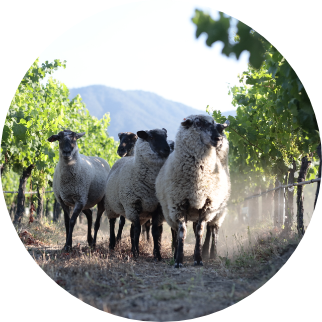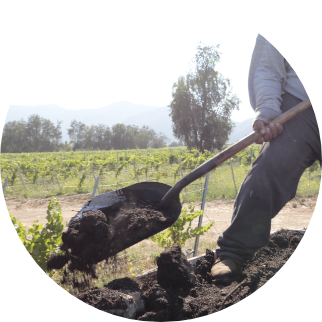🌎 El clima, la posición geográfica y la experiencia acumulada de los enólogos hacen del vino chileno uno de los mejores del planeta. ¡Te contamos por qué!


Healthy soils, biodiversity, and old vines are just some of the factors that will help you to distinguish an organic vineyard. Here we’ll let you know some of the most important characteristics.
You probably already know more than one reason why organic wines are better for the environment, and even for your body. Certainly, recognizing them in a bottle is very easy, as the majority of organic wines now have a large label identifying them as organic. However, sometimes identifying organic wineries is more difficult, which is why today we’ll teach you which factors you should focus on.

First, you should focus on the soils, as those in an organic vineyard will look healthy and full of life. This is logical, because having natural and non-mechanical practices means animals and insects that previous inhabited the soil return! They also begin to be part of the sustainable process; for example, sheep eat weeds and compact the soils, helping to produce living soils. At the same time, insects that are natural enemies of certain pests become incorporated into the environment.
In organic vineyards, there’s almost no contamination, and this is reflected in the old vines that may be hundreds of years old, and owe their longevity to the natural processes. In this way, with soils worked only by people and without heavy machinery, the soils can breathe and produce better working microorganisms. And the roots quickly dig even deeper as the soils improve, meaning the vines will have better access to nutrients.

As chemical fertilizers are not used, the vines rely solely on the soils and their respective minerals, which will later be reflected in the grapes, and of course in the pronounced flavor of the wine, marked by the origin of its character.
And we can’t forget that organic wineries produce sustainable terroirs over time, a product that helps foment a diverse ecosystem. Prohibiting pesticides, for example, is a way of protecting and caring for the living community.
No está demás decir que una viña orgánica produce terroirs sustentables en el tiempo, producto del fomento a un ecosistema diverso. La prohibición a los pesticidas, por ejemplo, es una forma de proteger y cuidar esta comunidad de seres vivos.
An organic winery works with nature, not against it, encouraging and protecting the biodiversity. It helps create an ecosystem capable of overcoming obstacles on its own, eliminating the need for chemical products. So now you’ll be able to recognize if a vineyard has healthy soils, old vines, and a wide variety of insects and animals.
{{cta(’87e62002-336d-4d8d-b07e-daeec80c79ef’)}}
🌎 El clima, la posición geográfica y la experiencia acumulada de los enólogos hacen del vino chileno uno de los mejores del planeta. ¡Te contamos por qué!
Disfrutar de un vino con moderación es la única forma de cuidar el bienestar y hacer de la experiencia algo agradable. Estás son las claves.
En el mercado existen más recipientes para guardar el vino, como tinajas de greda o barro, estanques de acero, estanques de cemento o huevos de cemento.